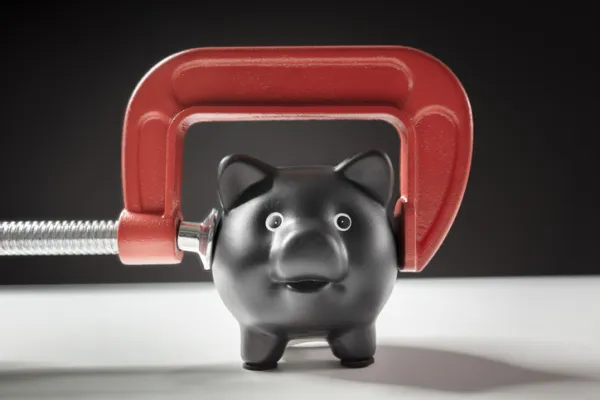More woes for Herbalife. Shares of the multi-level marketer of nutrition supplements slumped more than 10 percent Thursday after Massachusetts Democratic Senator Edward Markey sent letters to the Securities and Exchange Commission and the Federal Trade Commission calling on the government agencies to look into Herbalife’s business practices. He also sent a detailed, six-page letter to the company and said he wants a response to his questions by February 28.
In the letter, Markey raises the suggestion that the company is a pyramid scheme, the overriding case made by Pershing Square Capital Management founder William Ackman in laying out his high-profile short bet against Herbalife’s stock 13 months ago. “There is nothing nutritional about possible pyramid schemes that promise financial benefit but result in economic ruin for vulnerable families,” Markey said in a press release. “Herbalife may be a purveyor of health and wellness products, but some of its distributors are suffering serious economic ill-health as a result of their involvement in the company. I have serious questions about the business practices of Herbalife and their impact on my constituents.”
In a statement to several news outlets, Herbalife said: “We received the letter from Senator Markey this morning and look forward to an opportunity to introduce the company to him and address his concerns at his earliest convenience.” Shares of Herbalife are now down nearly 20 percent since January 10.
—
One of the favorite demands among activist hedge funds is for companies to aggressively buy back their stock. But does this tactic really boost shareholder returns? A new study says yes.
According to a new report issued by S&P Capital IQ, outperformance historically has continued even past the first few trading days following a company’s buyback announcement. It found that stocks on average outperformed the equally weighted Russell 3000 by 0.60 percent over one month, and by 1.38 percent over one year periods following buyback announcements. S&P Capital IQ found that stocks outperformed their sector and peer groups of similar size and value from January 2004 through July 2013. The study also found that outperformance is greatest among small caps or larger buybacks as a percentage of shares outstanding.
—
Shares of eBay rose less than 1 percent, to $54.94, the day after the e-commerce company disclosed that Carl Icahn is campaigning for it to split itself into two companies. This move was much less than the 5 percent gain in the stock in afterhours trading on Wednesday.
On Thursday, investment bank Stifel Nicolaus lowered its rating from Buy to Hold, noting that eBay shares are 20 percent higher than they were before the quarterly report, “and now fall within 8 percent” of its new $62 sum-of-parts-based fair value. “With eBay management resistant to activist ideas, and the likelihood of a Paypal spin-out low without management support, we believe that weaker fundamentals will return to focus soon enough,” Stifel Nicolaus tells clients in a note. “We now view the potential upside to $65 or higher as unlikely.”
—
Stifel Nicolaus also kept its Hold rating on Netflix one day after the streaming video company reported results and guidance that exceeded consensus forecasts. “We believe Netflix has won the streaming video battle, with larger competition hardly even showing up to the fight,” Stifel states in a note sent to clients. “We believe this success is fully reflected in the company’s share price and remain on the sidelines.” The stock closed Thursday at $388.72, up 16.5 percent.
—
Shares of Microsoft jumped more than 2 percent in after-hours trading on Thursday after it reported quarterly results that were better than Wall Street expected, led by strong demand for its new Xbox videogame console. The software giant, a target of activist hedge fund ValueAct Partners, is still looking for a new chief executive officer.





